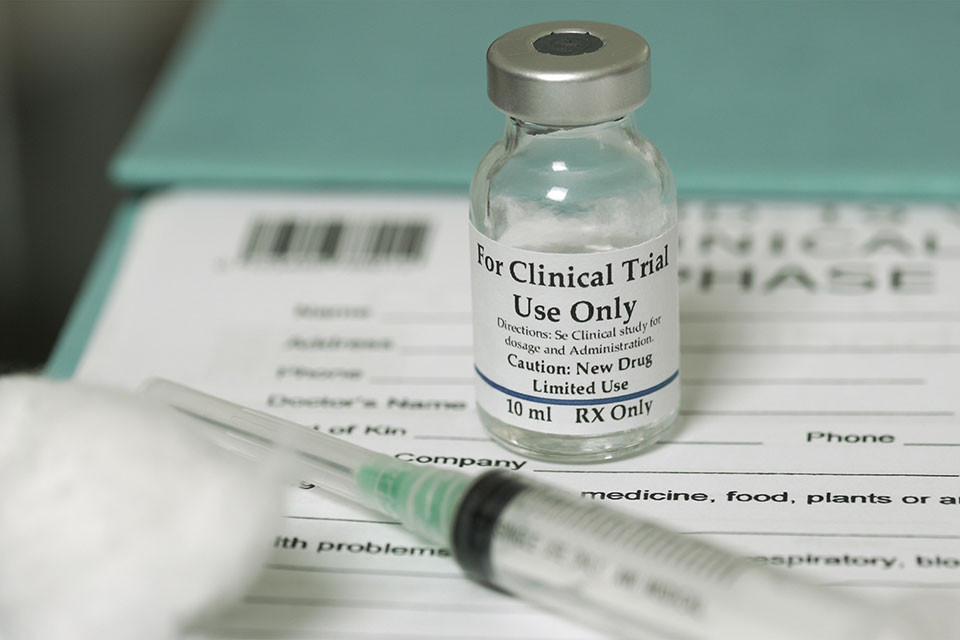Government
Future of Psychedelics Therapy Requires Broader Clinical Trials
Bigger, broader trials are coming.
The post Future of Psychedelics Therapy Requires Broader Clinical Trials appeared first on Green Market Report.


The future of psychedelics as an industry is dependent on the research being done today. But most psychedelics clinical trials are small, generally 50-100 participants, leading to speculation that they may not be a truly representative sample of a diversity of people to study for a certain condition.
Participants also may have high expectations of the relief they hope to get, which could skew their survey responses to the clinical trial. The blinded placebo structure of many clinical trials has come into question, and participant-selection criteria has come under fire, as well as the therapeutic dose to be administered during the trial.
Yet, so far, current psychedelic clinical trials demonstrate what looks to be true advances in understanding psychedelics for the novel treatment of a variety of mental (and physical) health conditions.
One of the leading clinical trials to date was conducted by the Multidisciplinary Association for Psychedelic Studies (MAPS). The randomized, double-blind, placebo-controlled, multisite Phase 3 study of MDMA for PTSD used 121 participants and was completed in November. It was the second Phase 3 trial of any psychedelic-assisted therapy.
One of the biggest psychedelics clinical trials to date was conducted by Compass Pathways, when the company completed a phase 2b clinical trial of psilocybin therapy for treatment resistant depression in 22 sites across Europe and North America. The company reported results at the May American Psychiatric Association annual meeting in New Orleans.
At the time, it was the largest randomized, controlled, double-blind psilocybin therapy clinical trial conducted so far in the psychedelics industry, with 233 participants in three separate groups: 79 participants in the 25-milligram psilocybin test group, 75 in the 10-milligram psilocybin test group, and 79 in the 1-milligram psilocybin test group.
As noted in the report about the trial in the New England Journal of Medicine (NEJM), there was some general success (some participants had sustained remission from depression for a few weeks) and some concerns (adverse effects happened in 179 out of the 233 participants).
“Larger and longer trials, including comparison with existing treatments, are required to determine the efficacy and safety of psilocybin for this disorder,” the study concluded.
Bigger trials are coming. In October, Compass announced it will conduct two separate Phase 3 clinical trials to study psilocybin-assisted therapy on treatment resistant depression, beginning next month. They will be the two largest psychedelic medicine clinical trials ever conducted, with 378 and 568 patients respectively.
The jury is still out on the efficacy of these clinical trials, with size and diversity still a common issue. An editorial in the NEJM posed the question: Are clinical trials of psilocybin for depression of adequate quality? Author Dr. Bertha Madras noted limitations of recent psilocybin trials that included limited power, lack of placebo control or comparisons with approved antidepressants, short-term duration of monitoring, and overrepresentation of participants with respect to race, college education, previous hallucinogenic experiences, use of other substances, or intrigue with spirituality.
Then there is the substance itself. “Can protocols for administering hallucinogens be scaled and retain fidelity to the plans used in trials?” Madras wrote. “Because psilocybin produces unpredictable hallucinogenic effects, administration is necessarily coupled to an extensive, nontraditional psychotherapy program.”
Madras thinks that the FDA is likely to require a risk evaluation and mitigation strategy regarding clinical trials to include rigid inclusion and exclusion criteria, limitations on dose and the number of doses, specialized therapy rooms and sessions, trained therapists, intensive sessions, a stringent chain of custody of the drug, and post-marketing surveillance and reporting.
Then there is the so-called psychedelic therapy bubble, which researchers say goes something like this: “In connection with the manufacturer’s promotion of apparently hopeful clinical trial results in the lead up to a new drug application for marketing approval, both the hopeful results and the novelty of the new drug’s hypothesized mechanism of therapeutic efficacy may be elevated to great clinical significance to an expectant medical profession, patient population, and stock market.”
A school of thought that today’s psychedelic clinical researchers are self-consciously aware of, and keen to prevent a return to psychedelic prohibition, carefully offers a “sober objectivity,” emphasizing psychedelics as therapeutic agents as opposed to subversive agents of social and political change, according to a study.
The future of larger clinical trials could create growth in adverse outcomes as the hype grows, the participant/patient pool widens, and psychedelic therapies are provided in more streamlined ways.
“Increasingly diverse patient populations hopeful of being cured will experience rocky ‘landings’ post-treatment,” according to the study.
“We might then consider this moment an opportunity to develop robust methodologies and alliances across research disciplines and with stakeholder groups,” the study’s researchers added, with greater consideration of the role of community support structures, psychedelic therapy’s long-term effects, what “safety” and “efficacy” mean amongst different stakeholder groups. This should happen “all before driving forward the mass scaling of prematurely rigid formulations of psychedelic therapy.”
The post Future of Psychedelics Therapy Requires Broader Clinical Trials appeared first on Green Market Report.
application
therapy
psilocybin
mdma
psychedelic
psychotherapy
depression
ptsd
hallucinogenic
fda
research
clinical trials

Here Are the Champions! Our Top Performing Stories in 2023
It has been quite a year – not just for the psychedelic industry, but also for humanity as a whole. Volatile might not be the most elegant word for it,…
AI can already diagnose depression better than a doctor and tell you which treatment is best
Artificial intelligence (AI) shows great promise in revolutionizing the diagnosis and treatment of depression, offering more accurate diagnoses and predicting…
Scientists use organoid model to identify potential new pancreatic cancer treatment
A drug screening system that models cancers using lab-grown tissues called organoids has helped uncover a promising target for future pancreatic cancer…













